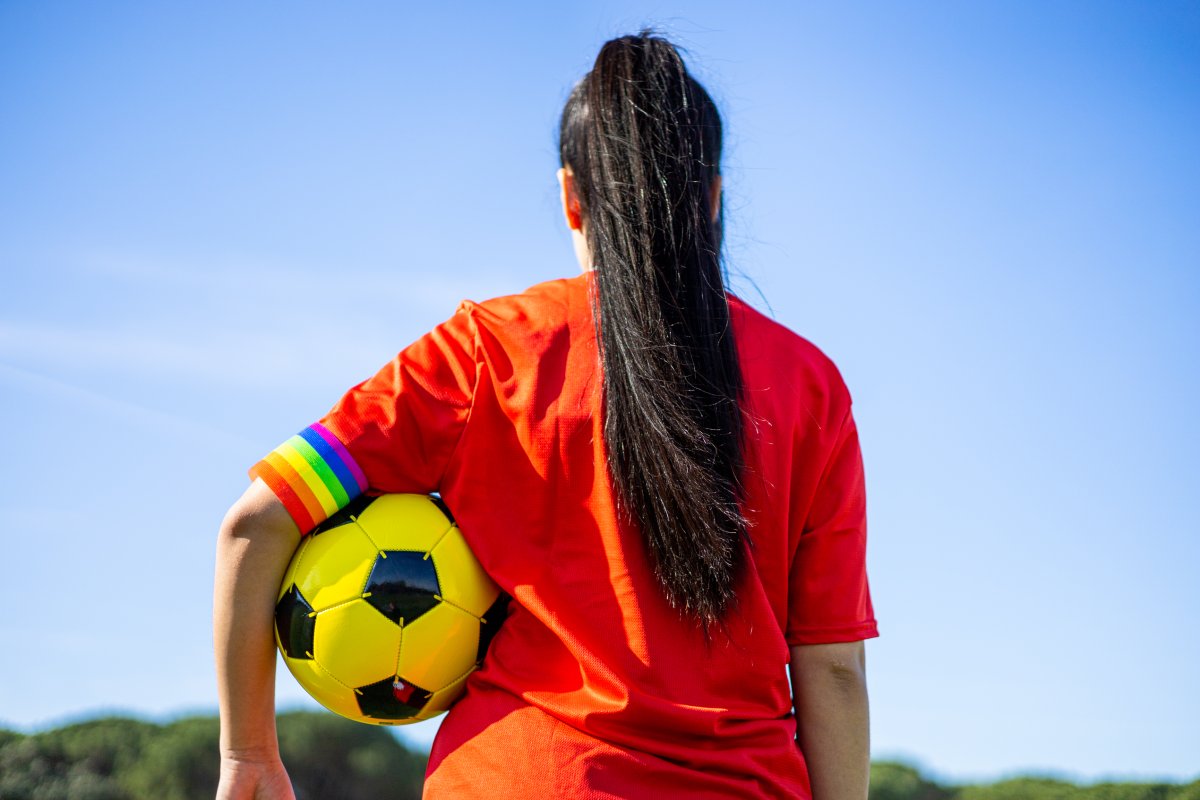The National Association of Intercollegiate Athletics (NAIA) voted on Monday to ban transgender women from women's competitions starting next school year, affecting a total of 241 colleges.
Context
Debates around transgender athletes have soared in recent years, with many conservatives arguing that transgender women competing in all-female leagues allow for an unfair advantage against biological girls and women.
Proponents of allowing transgender athletes to compete according to their gender identity argue that sports should be inclusive and accessible to all, regardless of gender identity, emphasizing the importance of equality and non-discrimination, pointing out that transgender athletes often face significant barriers in sports, including societal stigma and discrimination.
The issue has been left up for states to decide, with over 20 states implementing policies that restrict transgender athletes' ability to participate in sports that correspond with their gender identity. Those laws sparked lawsuits, arguing that transgender athletes were being discriminated against.
What We Know
On Monday, at the NAIA's national convention, the Council of Presidents determined that beginning August 1, "only students whose biological sex is female" may compete in women's sports. That includes transgender men or nonbinary students who are not receiving masculinizing hormones.

"We are unwavering in our support of fair competition for our student-athletes," NAIA President and CEO Jim Carr said in a news release. "It is crucial that NAIA member institutions, conferences, and student-athletes participate in an environment that is equitable and respectful. With input from our member institutions and the Transgender Task Force, the NAIA's Council of Presidents has confirmed our path forward."
Newsweek has reached out to NAIA via email for comment.
According to the NAIA's website, there are 241 member schools, most of them private with relatively low enrollments, that will be affected by this vote.
This comes after advocates have highlighted that the NCAA has guidelines in place since 2010, which include requirements for transgender women to undergo hormone therapy for at least one year before competing in women's sports, aiming to create a level playing field.
Views
Historically, the NCAA has generally advocated for inclusion but has resisted the pressure to pull championship events from states that prohibit transgender athletes from competing in publicly funded school sports.
"I think that [the NAIA vote] provides a feeling that the NCAA would have the latitude to do the same," Anna Baeth, director of research for the queer sports advocacy group Athlete Ally told the Washington Post. "I think that that feeling of latitude would be incredibly misguided."
In a statement emailed to Newsweek in response to NAIA's vote, the NCAA reiterated its commitment to inclusion.
"College sports are the premier stage for women's sports in America and the NCAA will continue to promote Title IX, make unprecedented investments in women's sports and ensure fair competition for all student-athletes in all NCAA championships."
Reacting to NAIA's vote, Riley Gaines, a former Division I collegiate swimmer who has been vocal against transgender athletes' inclusion in women's sports, praised the decision on X, formerly Twitter, writing: "The NAIA becomes the first national college governing body to mandate athletes compete with their sex in a [sic] overwhelming 25-0 vote."
Last week, while reacting to the Kansas GOP-controlled state Legislature voting to override Democratic Governor Laura Kelly's third veto of a bill that restricts transgender athletes from participating in women's sports, Athlete Ally, an LGBTQ+ activist group, called the Kansas bill "misguided and discriminatory."
In a statement shared with Newsweek, Athlete Ally added that it "goes against extensive research and ignores what we know to be the actual threats to women's sports: unequal pay, rampant sexual abuse and harassment, lack of women in leadership and inequities in resources for women athletes."
What's Next?
Internationally, sports organizations like the International Olympic Committee and various national bodies have wrestled with these questions, adopting policies that require certain testosterone levels for transgender athletes competing in women's events.
However, these policies are frequently under review, reflecting ongoing scientific debates about the effects of hormone therapy on athletic performance and what constitutes fairness in competition.
Update 4/9/24, 9:35 a.m. ET: This article was updated with comment from the NCAA.
Uncommon Knowledge
Newsweek is committed to challenging conventional wisdom and finding connections in the search for common ground.
Newsweek is committed to challenging conventional wisdom and finding connections in the search for common ground.
About the writer
Natalie Venegas is a Weekend Reporter at Newsweek based in New York. Her focus is reporting on education, social justice ... Read more
To read how Newsweek uses AI as a newsroom tool, Click here.






